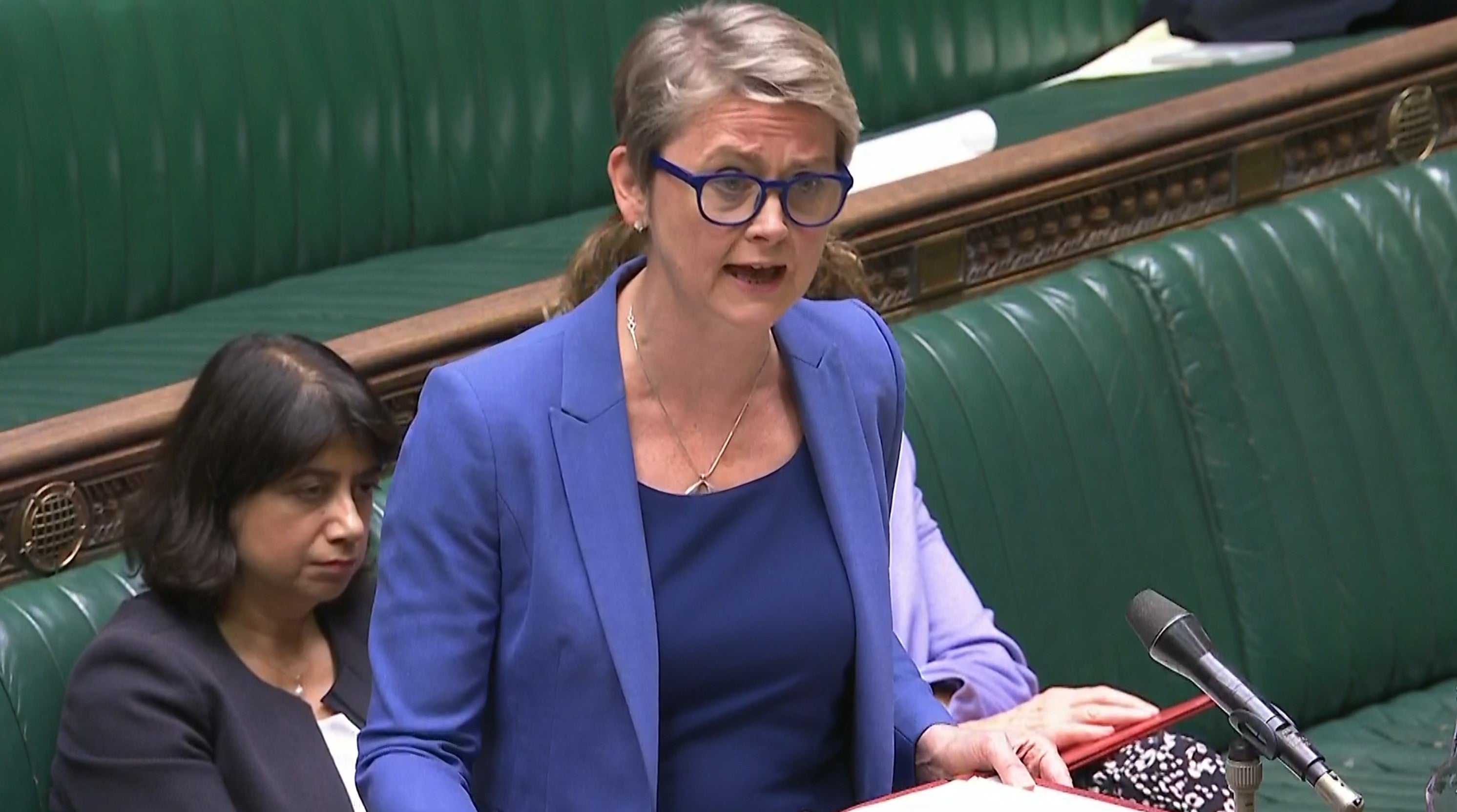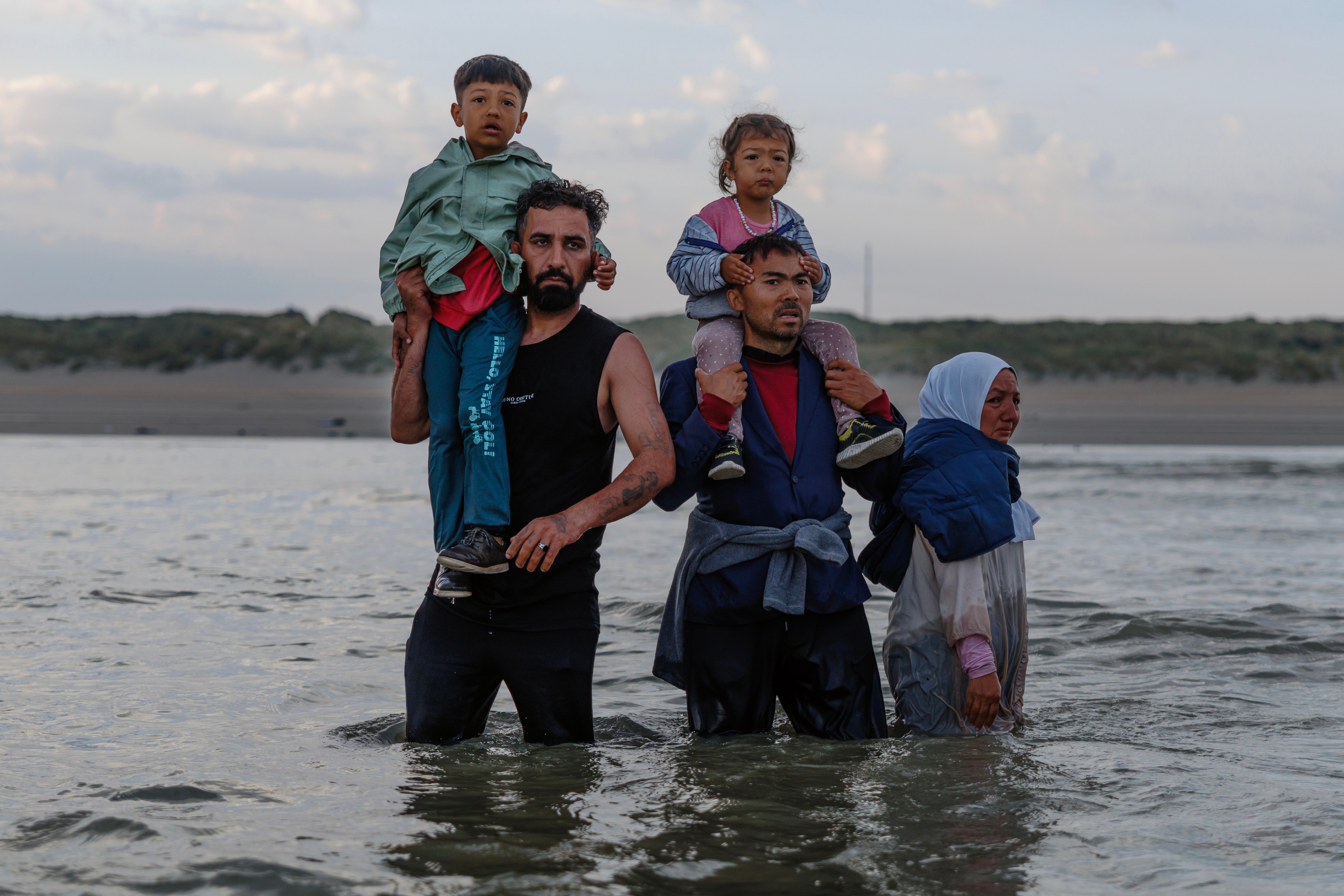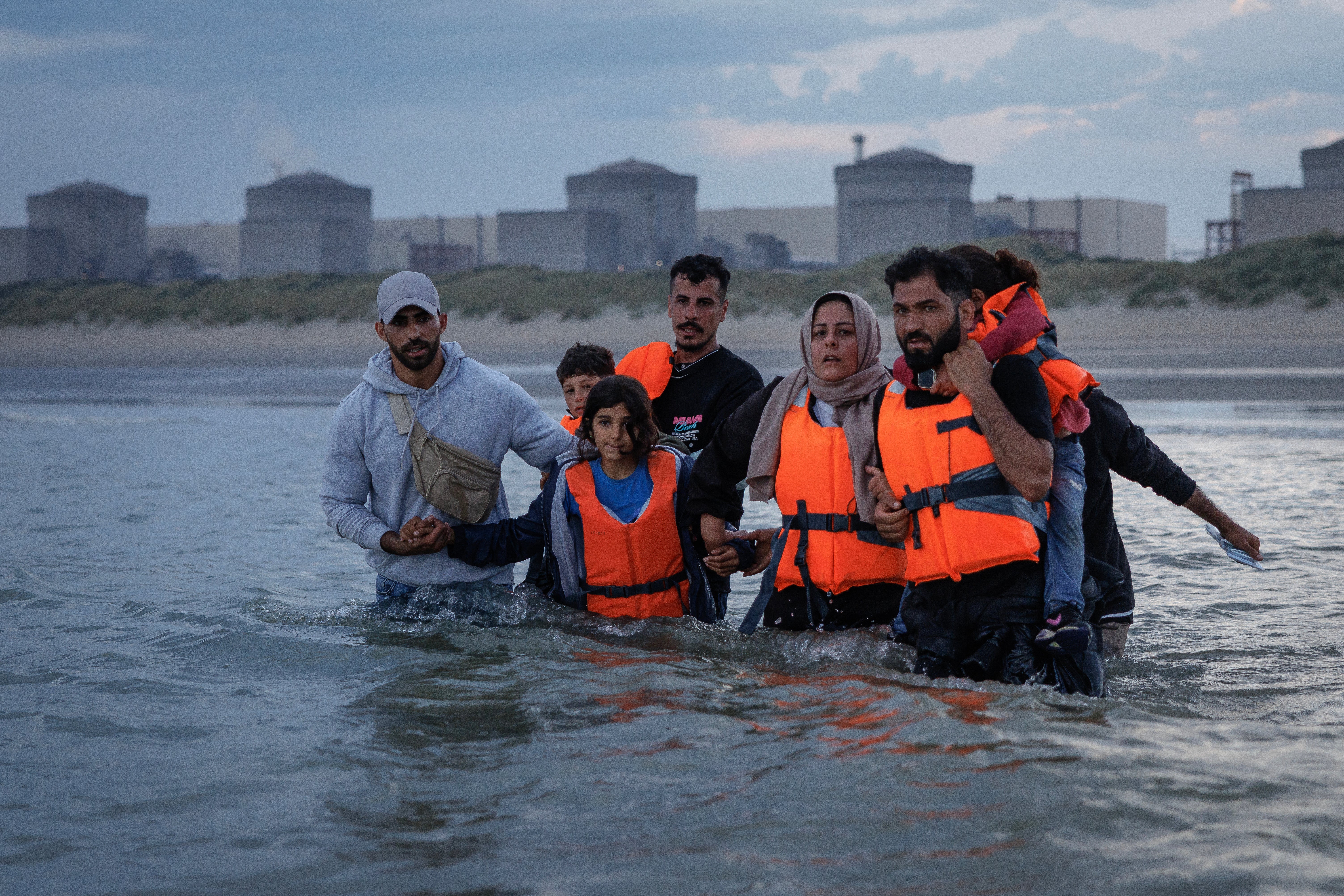Yvette Cooper’s new asylum crackdown may fuel more dangerous Channel crossings as women and children left languishing in war zones attempt to reunite with their loved ones in Britain, the British Red Cross has warned.
The home secretary on Monday announced a suspension on new refugee family reunion applications, a pathway which allows refugees living legally in the UK to apply to bring their close relatives to safety.
The charity, which has years of experience supporting refugee families to reunite in the UK, warned those relatives will now face a stark choice between waiting in conflict zones without their loved ones or beginning a perilous irregular journey to the UK.
Writing in The Independent, Alex Fraser, director of refugee services at the British Red Cross, says the impact of Ms Cooper’s announcement “could see children potentially separated from a parent for years, trapped in conflict or disaster zones”.
In the year to June 2025, there were a record 20,817 refugee family reunion visas issued. Over the past decade, 92 per cent of these were issued to women and children.

He writes: “Families will face harsh choices over those years – either trying to survive during the long wait for safety, or potentially risking the alternative – making a dangerous journey to the UK in order to attempt to rejoin their family.”
Small boat crossings have risen under Labour, with more than 29,000 people having made the journey so far this year, up from 21,052 people for the same period in 2024. Sir Keir Starmer, who is under huge pressure over the issue, has vowed to crack down on crossings by tackling smuggler gangs and by agreeing a one-in one-out deal with France.
Speaking to media on Tuesday, Ms Cooper declined to guarantee that asylum seekers would be sent back to France by October, but said that returns are “expected” to begin this month.
Mr Fraser also warns that restrictions on family reunion visas “could reduce the ability of refugees granted protection in this country to properly integrate into their communities”.
“We know that being with close family members is vital for people’s mental health and their ability to integrate into communities,” he writes. “Many people tell us they cannot begin to live again, until they know their loved ones are safe.”
Almost three-quarters of the cases that the British Red Cross supports are of children hoping to reunite with their parents in the UK, with the charity helping 288 families last year, Mr Fraser adds.
He gives the example of a nine-month-old baby who was separated from both his parents during the conflict in Sudan and left in the care of his elderly grandmother. The charity was able to reunite the parents with their son in time for his second birthday.
Although Mr Fraser says the process was far from easy, it “offered protection, hope, and a way for families to rebuild their lives together”. But he warns that any new scheme would result in “more barriers”.
“When families are together, we see them thrive. It’s vital that we protect this lifeline for those torn apart,” he writes.

Making the announcement in parliament on the first day MPs returned to Westminster after the summer recess, Ms Cooper said that new applications would be suspended until new rules are introduced, which will likely be in the spring.
These new requirements are expected to include a fresh waiting period before an application can be submitted, higher levels of English language skills and financial requirements. Refugees will reportedly have to wait two years before they can submit an application for their families.
The exact requirements are yet to be outlined but Home Office officials pledged in a policy document published earlier this year to “ensure those coming to the UK have an appropriate level of English language skills, to be able to effectively integrate into local communities”.
The plans would also “ensure the family unit has sufficient money financially to support any migrants without relying on the taxpayer”.
Ms Cooper said that, before the pandemic, refugees waited one or two years after their grant of protection to apply to bring their families to the UK. However, applications are now being made on average one month after refugee protection is granted.
This is having an impact on council accommodation for the homeless, as refugee families who can’t support themselves are turning to local authorities for emergency housing help, Ms Cooper told MPs.

Ms Cooper pledged on Tuesday to empty asylum hotels before the end of the current parliament in 2029. She also suggested that warehouses could be used for asylum accommodation instead of hotels, saying the Home Office was exploring “more appropriate sites, including looking at military and industrial sites”.
Under previous rules, refugees did not need to meet any financial or accommodation requirements to apply, and their families did not face any English language tests. This is unlike other reunion routes, such as for British nationals wanting to bring their partners to the UK, which require certain income thresholds to be met.
Other charities and campaigners warned that such a move by government could push more asylum seekers towards small boat crossings.
Flora Alexander, UK director at the International Rescue Committee, said: “Narrowing access for people seeking to reunite with loved ones is not a solution to system pressures, it risks pushing more people toward dangerous journeys and represents a step away from compassion and common sense.”
She added that the suspension of the route was “deeply alarming” as “family reunion is one of the best routes to a migration system that is both humane and orderly”.
Sile Reynolds, head of asylum advocacy at charity Freedom from Torture, said: “No one should have to wait years to be able to restart their lives, whether that’s due to the delays in decision making and appeals or the cruel and unnecessary suspension of refugee family reunion.”
What happened to Alan Kurdi and what did his death mean for the refugee crisis?
Ten years ago a picture of drowned child shocked us - today we are blinded by hate
Ministers accused of making ‘almost no progress’ on grooming gangs inquiry
Yvette Cooper encourages public to fly St George’s flag ‘anywhere’
Two men die and five others seriously injured in roundabout crash
Avoidable deaths among learning disabled adults still above general population







